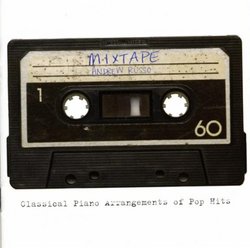| All Artists: Daniel Felsenfeld, Phil Kline, Glenn Kotche, David Lang, Marc Mellits, Anthony Molinaro, Ed Ruchalski, Andrew Russo, J.C. Sanford, Ken Ueno, Evan Ziporyn Title: Mix Tape Members Wishing: 1 Total Copies: 0 Label: Endeavour Classics Original Release Date: 1/1/2008 Re-Release Date: 8/12/2008 Genre: Classical Styles: Chamber Music, Historical Periods, Classical (c.1770-1830) Number of Discs: 1 SwapaCD Credits: 1 UPC: 723721346157 |
Search - Daniel Felsenfeld, Phil Kline, Glenn Kotche :: Mix Tape
 | Daniel Felsenfeld, Phil Kline, Glenn Kotche Mix Tape Genre: Classical
For those who went to an American junior high or high school in the 1980s and '90s, the mix tape was an important tool--a way for young people to encapsulate their identities. After carefully compiling the songs that meant... more » |
Larger Image |
CD Details
Synopsis
Album Description
For those who went to an American junior high or high school in the 1980s and '90s, the mix tape was an important tool--a way for young people to encapsulate their identities. After carefully compiling the songs that meant the most to them, these tapes were often shared among friends or given to romantic companions. It was a way to say, "This is me" when verbal or interpersonal skills seemed inadequate. Now a grizzled veteran of Generation X, Andrew Russo began to wonder what would happen if a number of American composers were asked to arrange their favorite tunes in their signature keyboard styles. Collaborating with composers such as Daniel Felsenfeld, Marc Mellits, Phil Kline, and David Lang, he presents the harmonies of pop standards through the lens of modern classical composers.

 Track Listings (14) - Disc #1
Track Listings (14) - Disc #1